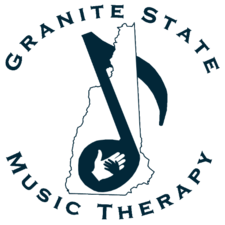World Brain Day: Awareness for Neurological Disorders and How Music Can Help
What is World Brain Day?
The World Federation of Neurology was established on July 22nd, 1957. In September of 2014, the Public Awareness and Advocacy Committee suggested 7/22 should be celebrated as “World Brain Day,” and by February it was decided that it would be an annual activity.
The primary aim of World Brain Day is to raise awareness about brain health and to educate the public on the importance of preventing and detecting neurological disorders early. According to the Federation, a significant percentage of brain conditions are preventable, including, 90% of strokes, 75% of head injuries, 40% of Dementia, and 30% of Epilepsies.
Music and Memory
Usually, in order to access a memory intentionally, the brain uses a significant amount of working memory. However, music can provide a spontaneous trigger for a memory. You may have experienced this phenomenon yourself, for example you hear a song from your childhood and it’s as if you are transported to a different time and place. For individuals with memory impairment, such as Alzheimer’s Disease, music provides a way to access memories without putting extra demand on their working memory. It’s almost a short-cut, going straight to long-term memory, which especially in early stages of Alzheimer’s Disease is fully intact.
Research shows that music training can protect the brain years before there is any sign of decline. Our brain relies on plasticity and grey matter to learn new things. Playing music has been found to increase grey matter, and keep the brain active. So, it not only can help with individuals with memory impairments, but can also protect the brain from cognitive decline.
Three Ways Music Can Help with Brain Health
Exercise. Music can be a great way to enhance physical activity and engage the brain. Whether it’s dancing to get aerobic exercise, or listening to your favorite music to motivate your work-out, using your favorite tunes is a great way to distract your brain from the monotony or discomfort of exercising.
Staying socially connected. Music is an excellent way to connect with others and strengthen social bonds. A few options for staying connected through music could be: experiencing live music together, joining a community drum circle, or simply connecting with others who have the same musical interests as you do.
Stress management. Research shows that music helps calm the nervous system and elevates mood. Actively listening to music, all the sounds and lyrics floating into your ears, brings you back to the present moment, soothes the nervous system, and offers a mental reprieve from stress and worries.
Resources:
Berman, Robby. (2023) Can music help train our brains to delay cognitive decline? Medical News Today
Ridder, H. M. & Tomaino, C. (2023). Music for Memory Disorders. In Devlin, K., Pantelyat, A. & Kang, K. (Eds.), Music Therapy and Music-Based Interventions in Neurology: Perspectives and research and practice (pp. 9-21). Humana Press.
World Federation of Neurology:
Author: Jenni Chute, MA, MT-BC
Editor: Cassadi Kulak, MT-BC





